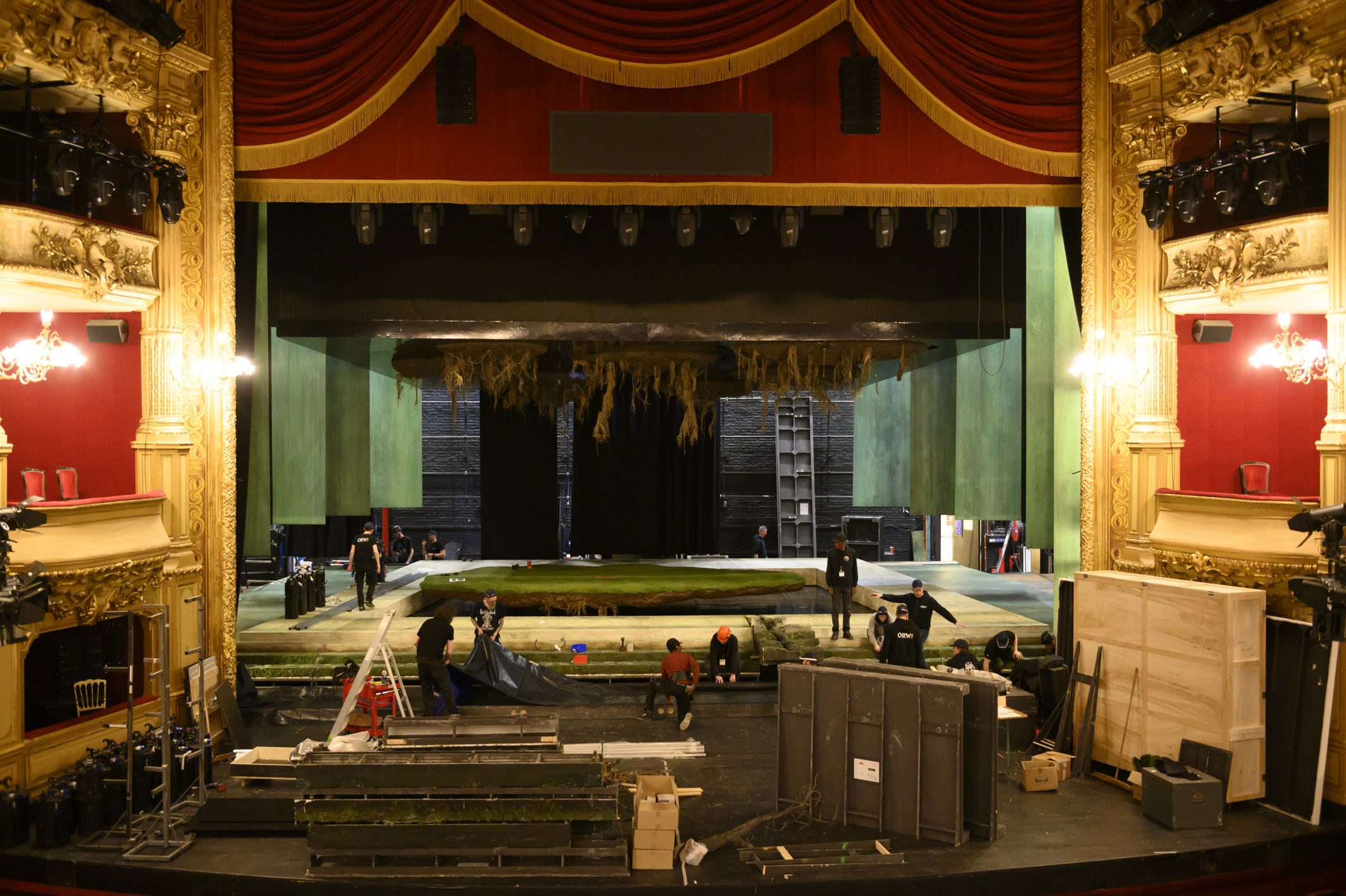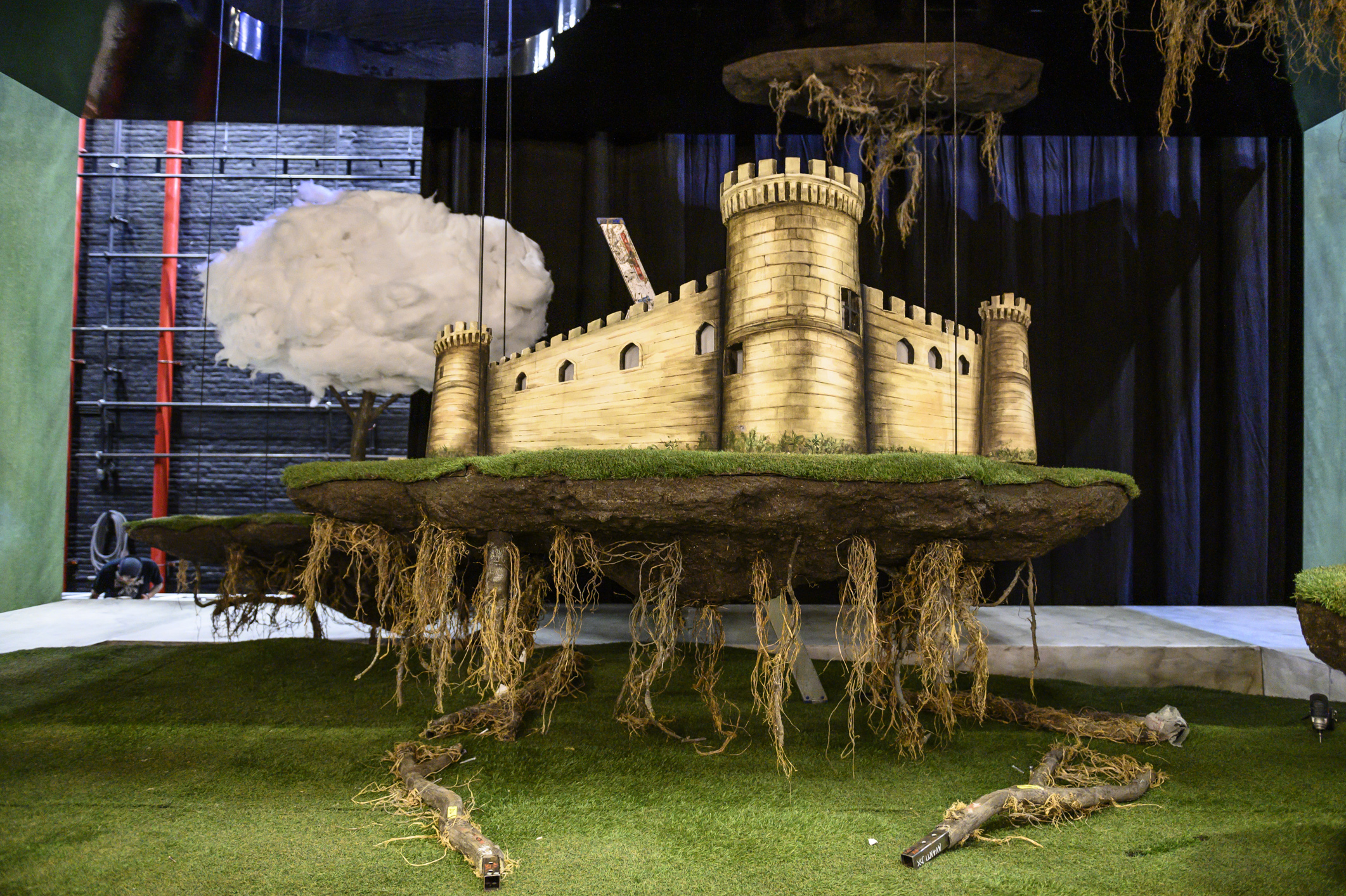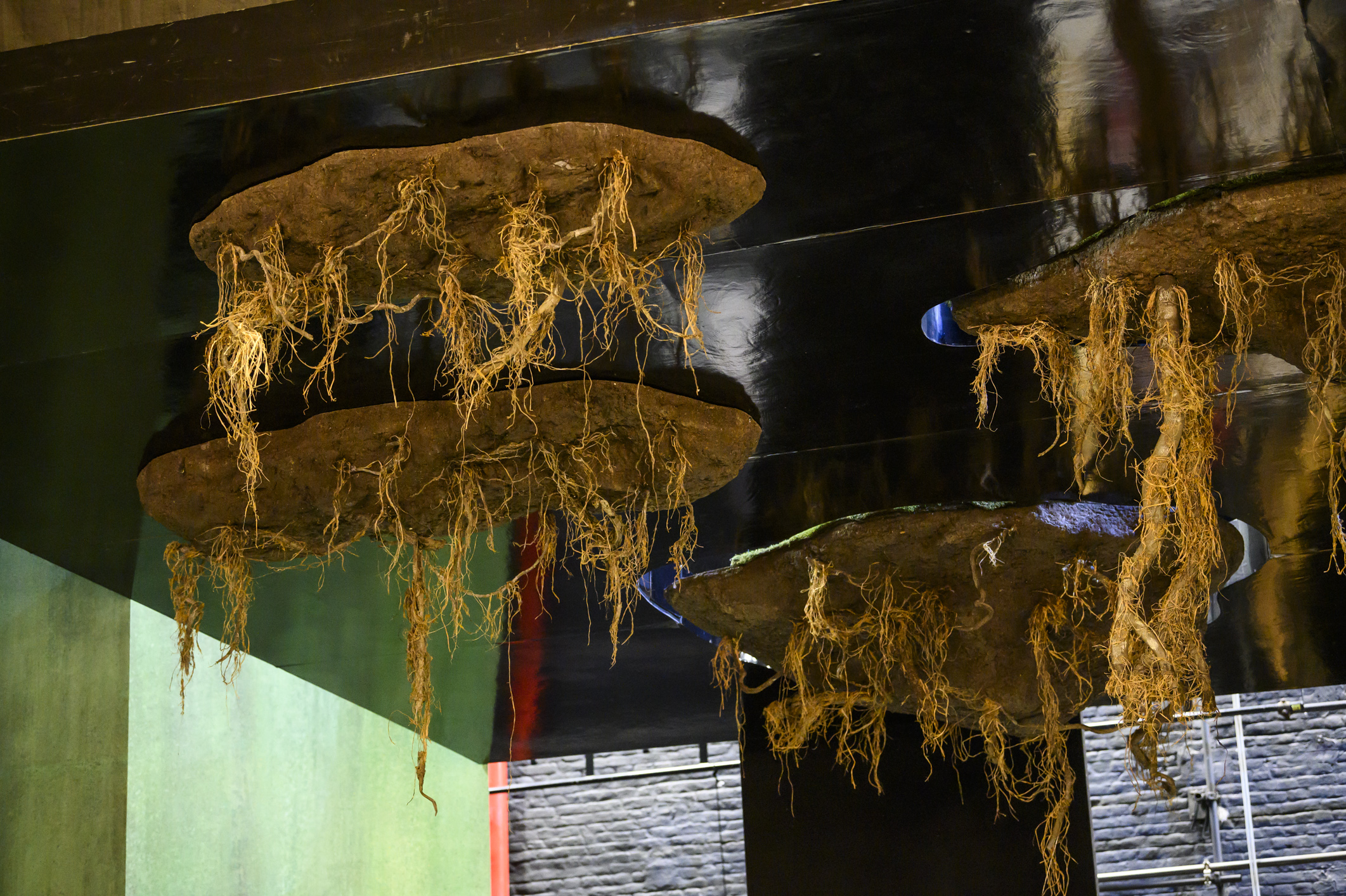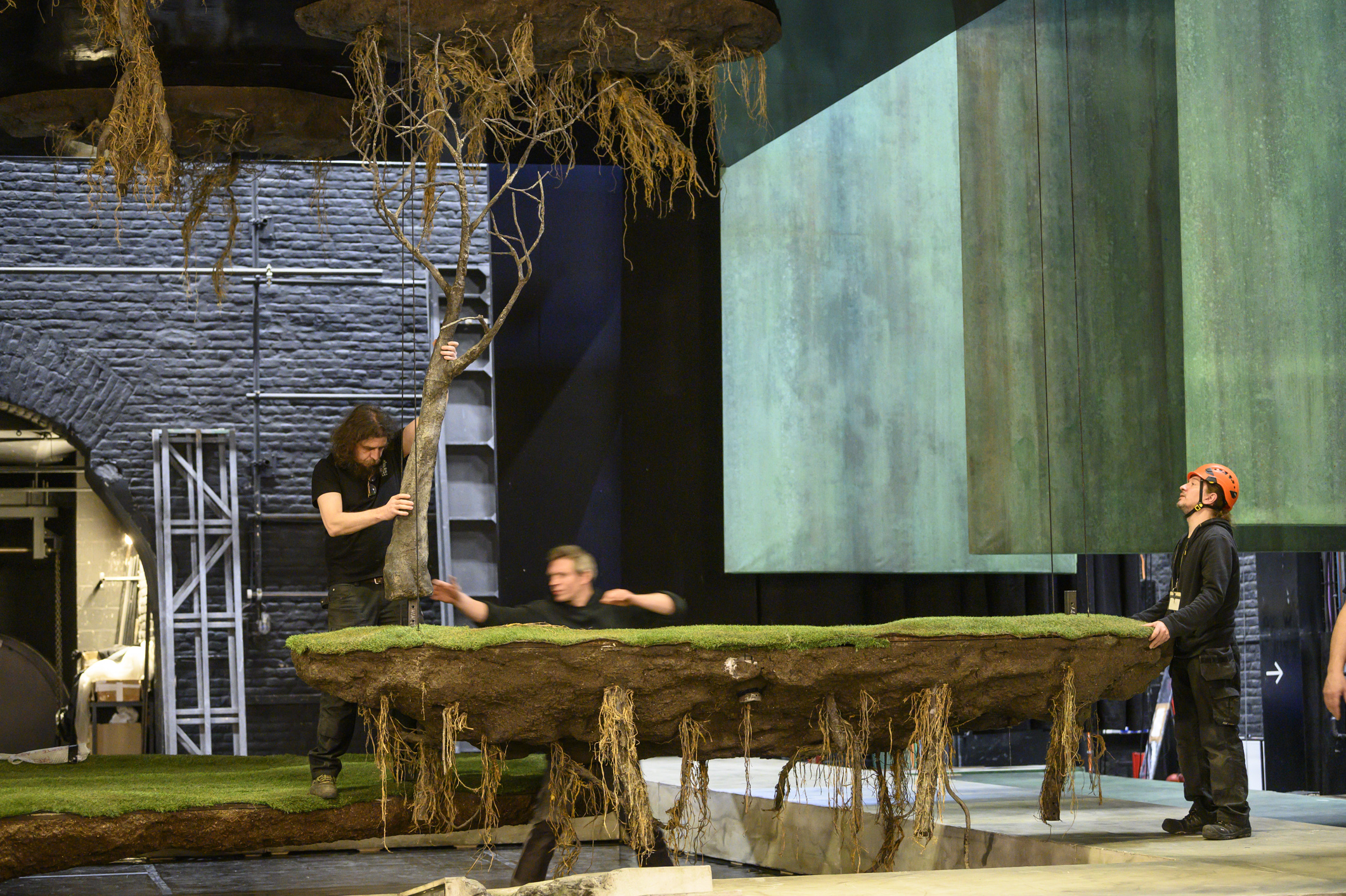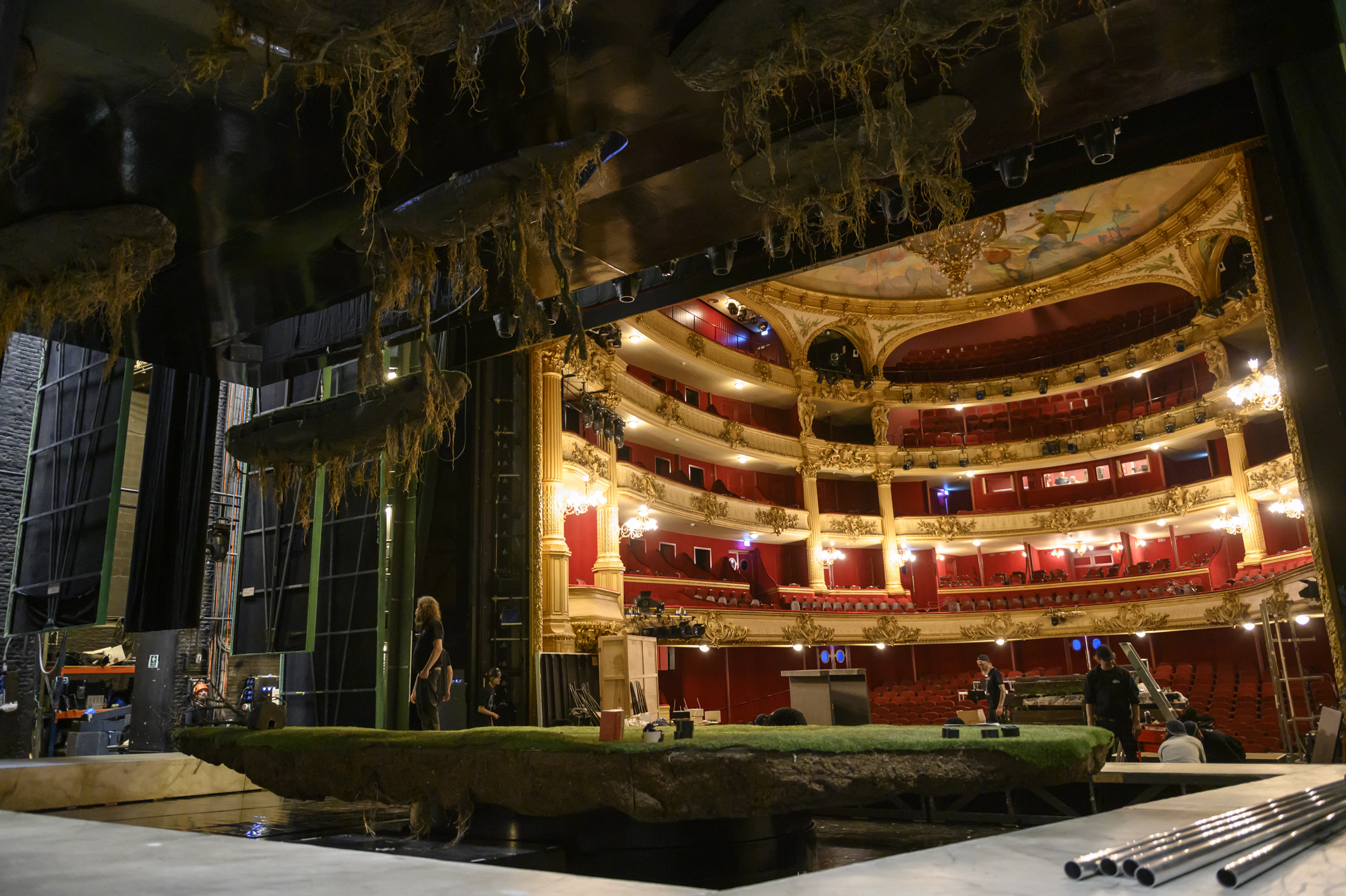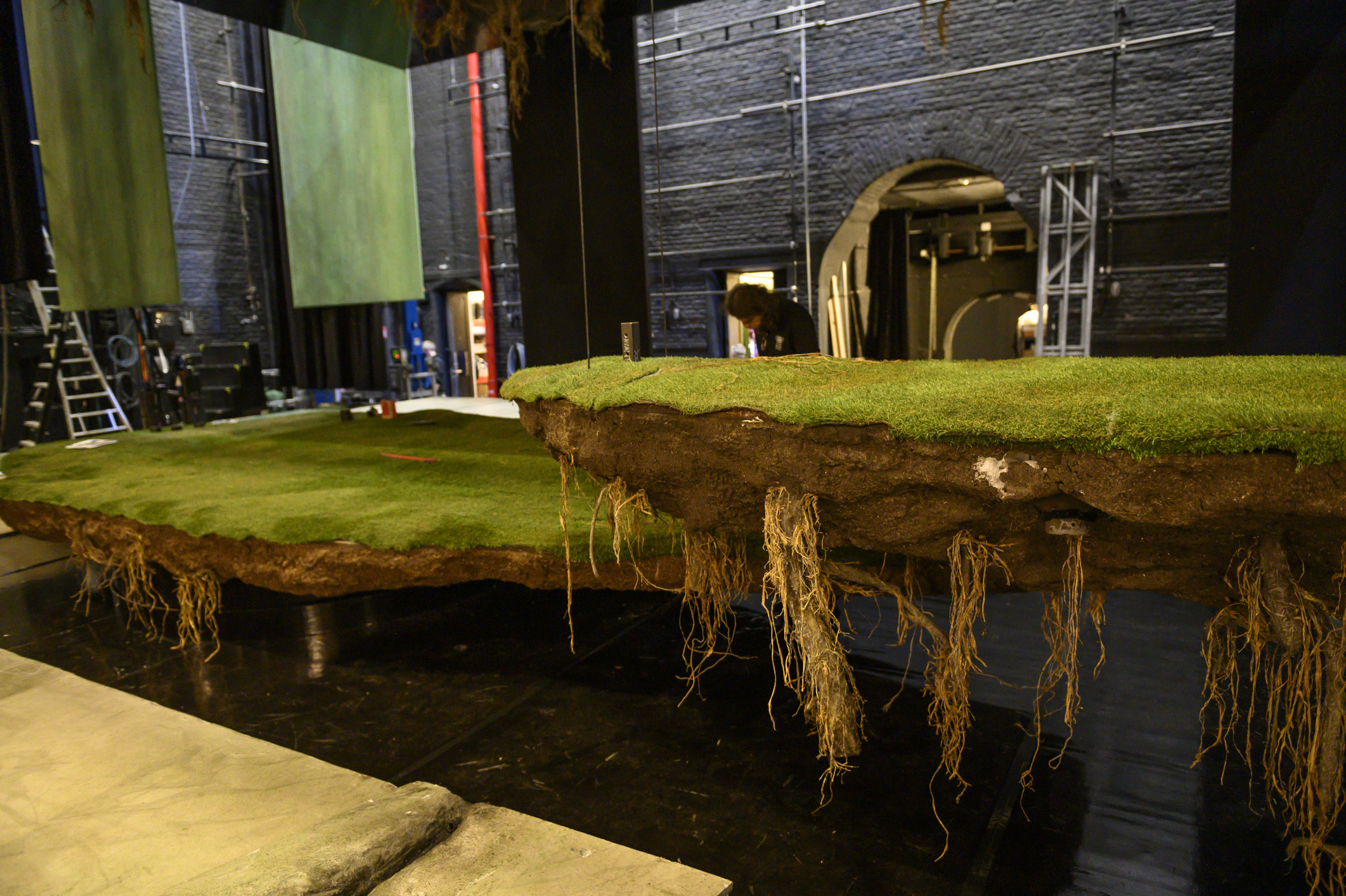Duration
03H10
Language
French
Surtitles
FR • NL • EN • DE
Watch this
For all , General audience
The story
“My long hair
hair go downTo the threshold
of the tower!My hair
is waiting for you
All along the tower!
And all through the day!
And all through the day!Saint Daniel
and Saint Michael,Saint Michael
and Saint Raphael,I was born
on a Sunday!
A Sunday at noon!”Maurice Maeterlinck,
Pelléas et Mélisande, at he beginning of Act III, Mélisande’s tirade
SENSUAL
ENIGMATIC
TRAGIC
TIMELESS
Libretto by Maurice Maeterlinck
In the imaginary kingdom of Allemonde, Prince Golaud meets, during a hunt in the forest, the mysterious and diaphanous Mélisande. Having married her without knowing anything about her, he introduces her to his half-brother Pelléas. Falling in love with each other, the two lovers are confused by Golaud who, in the height of his jealousy, kills Pelléas and lets Mélisande escape. She slowly dies of grief…
“These surprised repetitions that give the characters the appearance of slightly deaf sleepwalkers constantly torn from a painful dream… This lack of readiness to hear and respond is intimately linked to their psychology and to the slightly haggard idea they have of the universe.”
By evoking the strangeness of Pelléas et Mélisande, Antonin Artaud highlighted the modernity of Claude Debussy’s masterpiece, a unique work in lyrical history. The composer’s desire to renew the French opera spread his life with numerous attempts and sketches, of which only Pelléas will find a true outcome, becoming the only symbolist opera in history. Composing ≪ an opera after Wagner, and not after Wagner ≫ the song is immaterial and the orchestra elusive arouses, at the time of the creation in Paris in 1902, a perfume of scandal… As it generally happens at the time of the appearance of new aesthetics. Maeterlinck, after having fulminated of disappointment and wished the failure of the work, will reconsider his remarks and will greet the accuracy of the vision of the musician.
The musical writing of the role of Pelléas allows to entrust it either to a tenor or to a baritone, this last choice having been made by the composer at the creation of the work, and it will be also the case for this production.
- LAST PERFORMANCE AT THE ORW
MARCH 2007 - PRODUCTION
FONDAZIONE TEATRO REGIO DI PARMA

